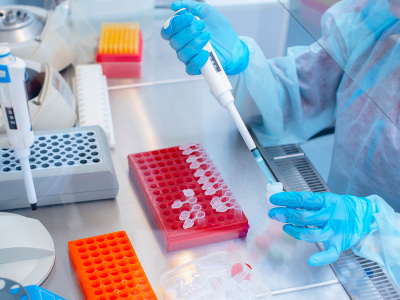Molecular Biology of Glycolysis Lab
Research at Charles UniversityWe focus on interdisciplinary research of the metabolism of various cells, ranging from terminally differentiated ones to the cancer-transformed cells. We study the abilities of the cell to reprogram the cellular metabolism according to the availability of nutrients and their ability to employ various metabolic enzymes and their individual isoforms. The ability of the cancer cell to reprogram the energy metabolism represents one of key hallmarks of carcinogenesis (Hanahan D. & Weinberg R.A., Cell 144: 646-674, 2011).
Our aim is to understand the molecular mechanisms of pathological changes in cellular metabolism and to uncover the weaknesses of the cancer metabolism, which could emerge as new targets of anti-cancer therapy. Pathological changes in metabolism can be represented by both the causes and consequences of common civilization diseases or heritable diseases, including various types of diabetes.
We focus on the roles of hexokinases in cancer cell metabolism. Depending on the tissue context, human cells may express multiple isoforms of hexokinases. Cancer cells mostly upregulate the expression of hexokinase I or hexokinase II. To study the isoform-specific roles of hexokinases, we use genetic engineering techniques (CRISPR/Cas9, CRISPRi, Sleeping Beauty transposon system, lentiviruses) followed by the biochemical and molecular-biological methods. Using these approaches, we monitor changes at the level of metabolic pathways. We also extend our focus beyond metabolism towards the effects of hexokinases on intracellular signaling pathways that are associated with the development and progression of malignancies.
The laboratory has been approved for the use of genetically modified organisms of level II; the projects may include (optionally) work with laboratory animals or cells of patients and volunteers.
Team leader & members
- RNDr. Petr Heneberg, Ph.D.
- Ing. Daniela Šimčíková, Ph.D.
- Master students:
- Dominik Gardáš
- Tomáš Pelikán
- Vojtěch Charvát
- Robert Žak
Available positions
Potential bachelor, master and PhD students can choose from currently offered topics. We seek motivated and creative students, who are interested to explore scientifically attractive topics under the guidance of experienced lab workers in a friendly atmosphere. If interested, please send your motivation letter, brief C.V. (in case you worked previously in any lab, include also the recommendation, if possible) to the e-mail of P. Heneberg.
Selected publication
- Šimčíková, D.; Heneberg, P. (2019): Identification of alkaline pH optimum of human glucokinase because of ATP-mediated bias correction in outcomes of enzyme assays. Scientific Reports 9 (1): 11422.
- Šimčíková, D.; Heneberg, P. (2019): Refinement of evolutionary medicine predictions based on clinical evidence for the manifestations of Mendelian diseases. Scientific Reports 9 (1): 18577.
- Těšínský, M.; Šimčíková, D.; Heneberg, P. (2019): First evidence of changes in enzyme kinetics and stability of the glucokinase affected by somatic cancer-associated variations. Biochimica et Biophysica Acta (BBA) – Proteins and Proteomics 1867 (3): 213-218.
- Heneberg, P. (2019): Redox regulation of hexokinases. Antioxidants & Redox Signaling 30 (3): 415-442.
- Heneberg, P. (2019): Comment on Mulukutla et al. Autoantibodies to the IA-2 Extracellular Domain Refine the Definition of “A+” Subtypes of Ketosis-Prone Diabetes. Diabetes Care 42 (5): e81.
- Heneberg, P.; Šimčíková, D.; Čecháková, M.; Rypáčková, B.; Kučera, P.; Anděl, M. (2019): Autoantibodies against ZnT8 are rare in Central-European LADA patients and absent in MODY patients, including those positive for other autoantibodies. Journal of Diabetes and its Complications 33 (1): 46-52.
- Heneberg, P.; Riegerová, K.; Říhová, A.; Šimčíková, D.; Kučera, P. (2018): Updates on the surface antigens of basophils: CD16 on basophils of patients with respiratory or insect venom allergy and the rejection of CD203c and CD63 externalization decoupling by bisindolylmaleimides. Clinical & Experimental Allergy 49 (1): 54-67.
- Tůma, P.; Heneberg, P.; Vaculín, Š.; Koval, D. (2018): Electrophoretic large volume sample stacking for sensitive determination of the anti-microbial agent pentamidine in rat plasma for pharmacological studies. Electrophoresis: 39 (20): 2605-2611.
- Heneberg, P.; Kocková, L.; Čecháková, M.; Daňková, P.; Černá, M. (2018): Autoimmunity-associated PTPN22 polymorphisms in latent autoimmune diabetes of the adult differ from those of type 1 diabetes patients. International Archives of Allergy and Immunology 177 (1): 57-68.
- Šimčíková, D.; Kocková, L.; Vackářová, K.; Těšínský, M.; Heneberg, P. (2017): Evidence-based tailoring of bioinformatics approaches to optimize methods that predict the effects of nonsynonymous amino acid substitutions in glucokinase. Scientific Reports 7 (1): 9499.
- Gandalovičová, A.; Rosel, D.; Fernandes, M.; Veselý, P.; Heneberg, P.; Čermák, V.; Petruželka, L.; Kumar, S.; Moreno, V.S.; Brábek, J. (2017): MIGRASTATICS, the anti-metastatic and anti-invasion drugs: the promise and challenges. Trends in Cancer 3 (6): 391-406.
Contact
Charles University
Third Faculty of Medicine
RNDr. Petr Heneberg, Ph.D. – petr.heneberg@lf3.cuni.cz
Ing. Daniela Šimčíková, Ph.D. – daniela.simcikova@lf3.cuni.cz
More information
https://www.lf3.cuni.cz/3LFEN-577.html
We have an interest in motivated post graduate and master students, who are interested to explore scientifically attractive topics under the guidance of experienced lab workers in a friendly atmosphere. If interested, please send your motivation letter, brief CV.
#benewmember
#ScienceAndResearch
#ThirdFacultyOfMedicine
